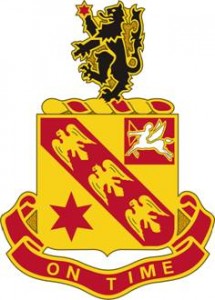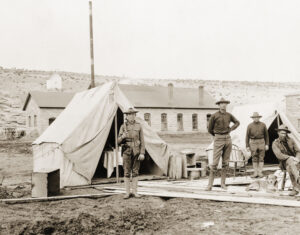Written By: Roger D. Cunningham

During the Civil War, the State of Ohio contributed almost 310,000 troops to the Union Army, and more than 35,000 of them died. One of these fatalities was Captain Isaac N. Dryden, who was mortally wounded at the Battle of Chickamauga while commanding Company D, 24th Ohio Volunteer Infantry. Isaac Newton Dryden was born in Adams County, Ohio, on 25 March 1842—the second of Thomas Groton and Elizabeth Ellis Dryden’s nine children. He grew up on a farm near Bradysville and was barely nineteen in April 1861 when Confederate forces fired on Fort Sumter.
After President Abraham Lincoln called for additional troops to put down the rebellion, Dryden was one of the first men to join the Adams County Guards, a volunteer company that was organized in late May in West Union, the county seat. In early June, the unit marched a few miles south to Manchester, on the Ohio River, where it boarded the steamboat Bostana and sailed to Cincinnati. After the volunteers demonstrated their ability to march, one newspaper described them as “the finest looking body of recruits, of the same number, we have seen yet in the city.”
From Cincinnati, the men traveled by train to Columbus, the state capital, and on 13 June, they were mustered into federal service as Company D, 24th Ohio Volunteer infantry. The ten-company regiment was commanded by a former regular—Colonel Jacob Ammen, an 1831 graduate of the United States Military Academy. The West Union Democratic Union reported that the soldiers considered themselves “highly favored” to have Ammen as their colonel. Dryden was immediately appointed as one of Company D’s eight corporals, and he was promoted to sergeant before the 24th Ohio saw its first action at Cheat Mountain, (West) Virginia, in September 1861.
He must have performed capably under fire, because in mid-November, he was selected to be Company G’s second lieutenant. By April 1862, the 24th Ohio had moved to western Tennessee as part of the Army of the Ohio, commanded by Major General Don Carlos Buell. The regiment was part of the force that Buell rushed to reinforce Major General Ulysses S. Grant’s army after the latter was surprised by Confederate troops on 6 April 1862 while camped near Pittsburg Landing along the Tennessee River.
The 24th Ohio’s brigade was the first element of the Army of the Ohio to reach the river. As the fresh troops were ferried across the Tennessee, they encountered hundreds of frantic Union soldiers swimming by them in the opposite direction. Isaac later referred to this as “the most discouraging thing that I ever saw.” The 24th Ohio helped to shore up the left flank of Grant’s defensive position and to avert a federal defeat in the Battle of Shiloh. A few days after the battle, Isaac wrote his father to inform him that he had picked up a Confederate canteen as a souvenir. He also complained that he had not been paid in six months, and he asked his father to send him some postage stamps.
As Union forces pushed south into northern Mississippi, the 24th Ohio was one of the first regiments to enter Corinth on 30 May 1862, after a month-long siege. In June, Isaac was promoted to first lieutenant in Company B, and a month later, he again wrote his father, saying that the rumor that Richmond had been captured had “increased our courage considerably, and we are made [to] believe that the war will soon be over do we not meet with a reverse.” The young officer optimistically predicted that “our hard service is almost over.”
By August, however, Isaac wrote from McMinnville, Tennessee, to report that his unit had “seen the severest service in the past three weeks that we ever saw. We have marched in the scorching sun almost every day from twenty to twenty-five miles and the dust has been almost shoe mouth deep. And when we would lay up for a few days we would have no tents[,] so you see it has been tolerably severe.”
The 24th Ohio played a minor role in the Battle of Perryville, Kentucky, on 8 October 1862, and it helped to pursue the retreating Confederate army before proceeding to Nashville. The Army of the Ohio was renamed the Army of the Cumberland, and under a new commander, Major General William S. Rosecrans, it was reorganized and advanced on the enemy located at Murfreesboro, Tennessee. The 24th Ohio entered the ensuing Battle of Stones River on 31 December 1862 with only fourteen officers and 314 men—less than one-third of its authorized strength.
After the fighting ended on 2 January 1863, the regiment had lost ninety-eight more men. Fourteen of them were fatalities, including regimental commander Colonel Fred Jones and three other officers. Dryden took temporary command of Company B. The 24th Ohio’s temporary commander, Captain Armstead Cockerill, composed an after action report giving “great praise” to Lieutenant Dryden and seven of his surviving fellow officers “for gallant and efficient services rendered during the entire engagement, displaying that coolness and bravery so necessary in such emergencies.”

A few weeks later, Dryden was again singled out for commendation by his brigade commander, Colonel William Grose. When Grose’s brigade encountered approximately 1,000 Confederate cavalrymen near Woodbury, Tennessee, the Federals caused the enemy “to retire in confusion, double-quick,” and the colonel reported that he had noticed Lieutenant Dryden and another officer “as prompt and efficient commanders of the front skirmish lines.”
In January 1863, Dryden was promoted to captain, with a date of rank of 31 December 1862, and by March, he had returned to Company D as its commander. After the 24th Ohio received four months’ back pay, Isaac was given fifteen days of leave so that he could carry money from soldiers to their families back in Adams County. In May, he and a first lieutenant requested assignments as field officers “of any Negro troops now raised or to be raised.” The two officers explained: “The sole and single purpose of this application is with a view to serving our country more, in a new and partially untried sphere of duty, and as for our competency and general good character we confidently refer to the endorsements upon this application, relative thereto.”

The two men’s request for service with the United States Colored Troops was endorsed by Lieutenant Colonel Cockerill and eighteen other regimental officers, who suggested that Dryden was “eminently fit” to command any body of troops as a colonel. The officers concluded that Isaac was “a first class drill-master, an excellent disciplinarian, and possesses a happy faculty for instructing raw troops.” Captain Dryden remained in command of Company D, and in August, he wrote his father from Manchester, Tennessee, to tell him the sad news that he had been robbed of $560, which represented more than four months’ pay. He noted, “I have not the shadow of a hope of me finding it.” Isaac did not have long to feel sorry for himself, however, because the 24th Ohio was soon on the march, as the Army of the Cumberland advanced on General Braxton Bragg’s Confederate forces in Chattanooga, Tennessee.
On 9 September 1863, Isaac’s brigade moved up Lookout Mountain, southwest of Chattanooga, driving the enemy away without sustaining any casualties. Colonel Grose’s after action report cited Captain Dryden and his company “for daring bravery in the advance in ascending the mountain and driving and punishing the enemy.” After discovering that the Confederates had abandoned Chattanooga, the federal force camped a few miles south of the city in northwestern Georgia. On 19 September, the armies of Rosecrans and Bragg collided in the Battle of Chickamauga.
When the fighting resumed on the second day, the 24th Ohio was crushed in a massive Confederate attack on the Union positions. The regimental commander’s after action report noted that Captain Dryden had been “borne from the field severely wounded.” Suffering from serious wounds to his left shoulder and lung, Dryden was one of about 100 federal officers who were admitted to General Hospital Number Seven, located in the Masonic Academy on College Hill on the southwestern edge of Chattanooga. His condition gradually worsened, and he died on 1 October 1863.
Sometime over the next few weeks, Dryden’s remains were transported home to Adams County and buried in the small family cemetery located high on a hill in Sprigg Township a few miles north of the Ohio River. In November, one of Isaac’s officers, Lieutenant George Collings, wrote Thomas Dryden to say that he was “truly glad to hear that you have succeeded in getting the remains of the Captain home[,] as it will undoubtedly be a relief to you to know that he has been decently interred.”The 24th Ohio continued to fight in Georgia until its three-year term of service expired in June 1864. The unit mustered out of federal service at Chattanooga, having suffered 176 fatalities—68 killed or mortally wounded and 108 from disease. Captain Isaac Dryden had played a conspicuous part in helping his regiment establish an honorable war record, one in which all Ohioans could take pride.


